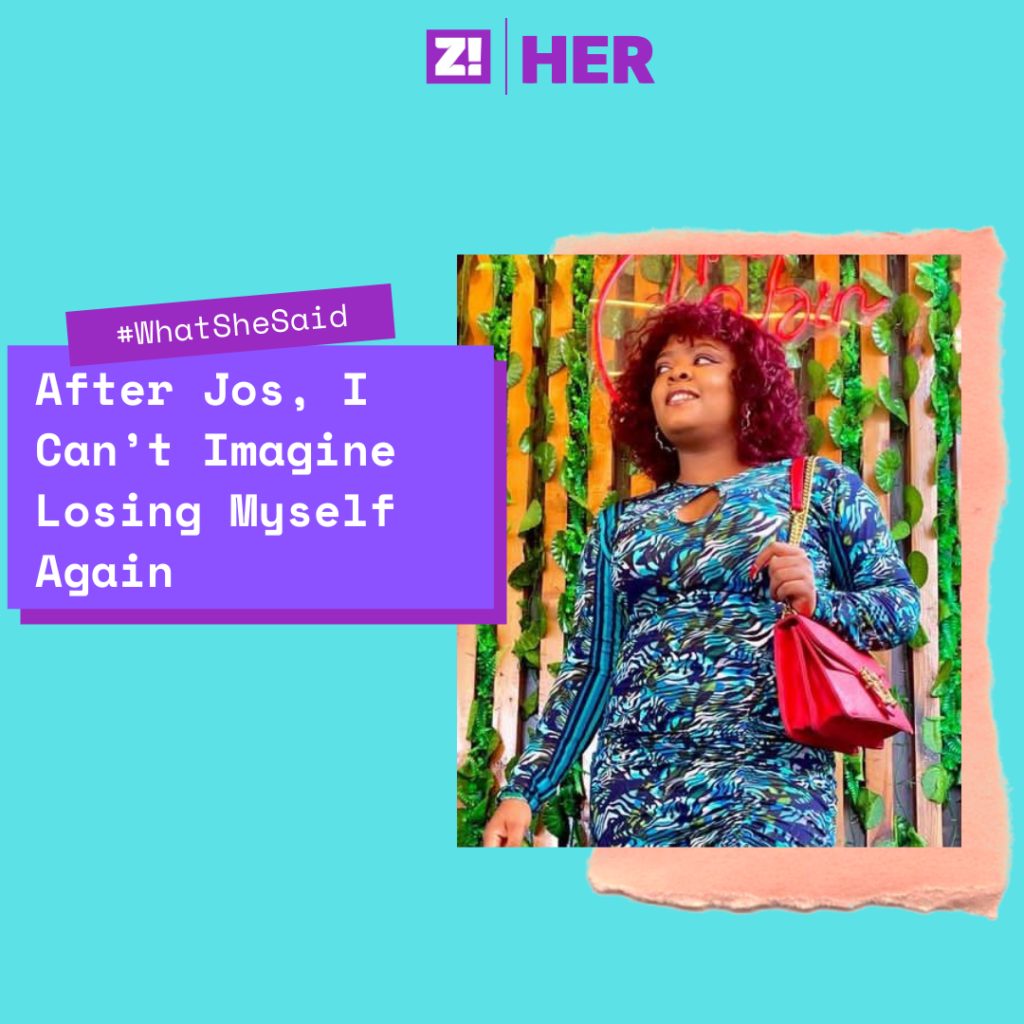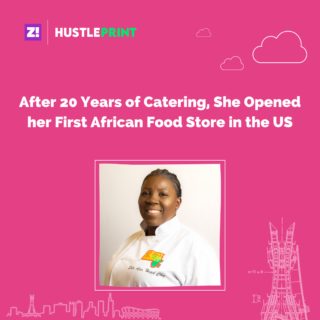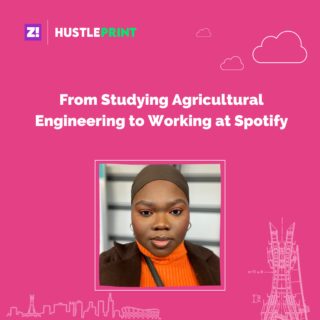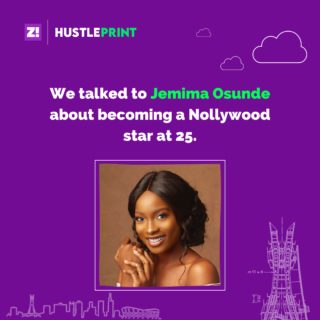Navigating life as a woman in the world today is interesting. From Nigeria to Timbuktu, it’ll amaze you how similar all our experiences are. Every Wednesday, women the world over will share their experiences on everything from sex to politics right here. This is Zikoko’s What She Said.

Today’s subject for #ZikokoWhatSheSaid is Michelle Nelson, a 25-year-old Nigerian woman. She talks about leaving Jos in 2012 after the religious riots started in 2001, and discovering versions of herself that make the woman she is today.
How old were you when you left Jos?
15. It’s a place with some of my fondest memories but was also the most scarring period of my life. Two years ago was the first time I could sleep well since we left Jos. I struggled with fear for so long.
I’m sorry you experienced that.
Thank you. Jos is something I’ve always wanted to talk about.
How about we start from the beginning?
Yes, please. My parents found love in Jos. My mum was 18 when they met. A year later, she had me, and three years later, my brother. We were a small family. We lived in Dogon Dutse, located in the northern part of Jos. Although most of my years in Dogon Dutse were during the crisis, my earlier memories were good. Life was easy there.
My mum was a full-time housewife, while my dad travelled for work all the time. We depended on just his salary because of how cheap things like food and rent were.
It sounds peaceful. Was it also fun?
My parents were quite strict, so I don’t remember having much “fun”. Plus I was too young to be going to parties if there were even any at the time. I didn’t stay long enough to explore what fun meant for a teenager in Jos.
Fun for me was running outside to lick ice whenever it rained and throwing it at my friends. That’s not something I ever got to experience outside of Jos. Dogon Dutse is known as the rock valley, so we did a lot of rock climbing too. If there’s anything I really loved, it would be those moments with my friends. Once we left Jos, making new ones became difficult.
Why?
Well, I’m an introvert. But there was the part of trying to figure out who I was after I’d seen so much death.
Let’s talk about the riots.
I witnessed my first in primary school. I can’t remember my age, but I remember the scene. There’d been religious riots around Jos, and it got close to Dogon Dutse. Everyone was scared. My brother and I were at the front of our school waiting for my mum to pick us up. Before she came, I watched people cling to their kids and important documents as they ran for safety.
And your dad?
My dad worked with road safety and was posted to different parts of the country all the time. My mum had to be the strong one, but I could see the fear in her eyes, I could feel it.
After that, there were at least two or three more attacks. There were times we had to hide in the rocks around Dogon Dutse to feel safe. Falling asleep was impossible. About 11 years later, my dad finally asked us to relocate to Akwa Ibom. No one objected. I knew I’d miss my friends in Jos, but I also knew I wouldn’t survive another two or three years there. We had to go.
I’m really sorry. What was it like living somewhere new for the first time?
I still couldn’t sleep, but it was better than Jos. I still woke up in the middle of the night from nightmares.
Losing the familiarity of Jos also affected me. I had eight really tight friends back home, and it dawned on me that I might never see them again. Living miles away eventually took its toll on keeping in touch. Even the one person I thought would be in my life forever got married and moved on with her own life. I had to focus on my new life in Akwa Ibom.
Did you talk to your parents?
I tried once or twice to tell my mum, but she didn’t take it seriously. She felt I could easily get over it. Till now, she doesn’t acknowledge that it was a traumatic phase for me. It usually ended with a joke or two on how I exaggerated things. Maybe it’s a Nigerian parent thing.
As for my dad, we weren’t close enough for me to open up. And my brother was too little to understand how I felt about the nights we had to hide. So I was on my own. Now that I think about it, what I needed was therapy.
What did you get instead?
Church. Going to church helped when I couldn’t handle the emotions alone. I finally got used to the peace I felt in Akwa Ibom. I’d wake up scared, and my brain would remind me that I was safe.
Sweet. What was Akwa Ibom like?
Even though I felt like I had to start my life over again, the great part was experiencing the culture outside Jos. Like… the accent. It was very different from Jos. The people were also a lot more outspoken, and that’s not something you get in the north.
What I really experienced for the first time in Akwa Ibom was love. I went from being a naive girl into a full-blown young lady that knew what it was like to be in love. It’s also where I got my first heartbreak.
LOL. That’s what we call breakfast.
LOL. That breakfast was my first and last. Two years later, I went to uni in Delta. And that’s where I got my real culture shock.
My school was located in Warri, and the people were loud. And I mean very loud. In Akwa Ibom, I was mostly inside the house. Warri was the first place I experienced for myself because I lived on campus. So I got to move around town and saw a lot of the craziness.
Let me just point out that I’m from Delta sha.
LOL. Don’t be angry. Warri was a place you’d walk out and see a fight break out from nowhere. It was so different from Jos. Learning to speak pidgin English was the only way to blend. It made it easier to sync with the people there.
What did you discover once you connected with the people?
The extroverted version of myself. I was coming from my first heartbreak, so I wanted to have fun. I was hanging out with more people and partying. I think of it as my exploration phase.
Then I made a friend in 2018, and she took it up a notch. We’d go out clubbing back to back and drinking the night away. I grew tired of it by 2019. I think it had to do with finishing uni and realising there was a lot more to life than partying. The introvert in me was also tired.
After Delta, I retired the clubbing phase of my life.
So who were you after Warri?
A Lagos babe. Lol. Going back to Akwa-Ibom wasn’t an option for me. I was the first child, and I didn’t want to depend on my parents anymore. So when I finished my NYSC in Lagos, I decided to stay. I needed to figure shit out on my own.
Did you?
It’s been two years since I moved, and I’d say yes. I’ve gotten a job, and I earn enough to support myself. I even started sleeping better. There’s still a lot of work I need to do to fully support my family, but at least I’m on the journey.
What do you miss about Jos?
All the years I’d moved around, I never met people that lived through my reality in Dogon Dutse. I also didn’t meet people that stayed in my life while I moved between different phases. So I got used to being alone. I didn’t try to stay connected with my friends in Jos even though some of them tried.
But I’ll say this, I wish I tried harder. Last year, one of my Jos friends died. She’d been in Lagos, but we never spoke. I never even followed her back on Instagram. When my childhood friends organised a virtual memorial for her, our pictures seemed like a lifetime ago. I couldn’t picture us as the kids that snuck out of school. Too much time had passed, and I judged myself for allowing that gap.
I’m sorry. Did you try to stay in contact after that?
I try to follow people back on Instagram. LOL.
Let me be honest, I’m fine if I can’t build back the connections I lost. There are some things time can’t fix or change. I will try my best though.
And Jos? Would you ever go back?
Nah. I miss the memories there, but I’m happier with the version of myself I’ve discovered between Akwa Ibom, Warri and now, Lagos. I can’t imagine losing myself all over again. I’m only focused on getting to the point where I can live my life without fear.
I miss eating masa and suya though. It’s been way too long since I had some.
For more stories like this, check out our #WhatSheSaid and for more women like content, click here




